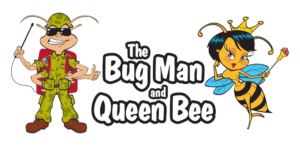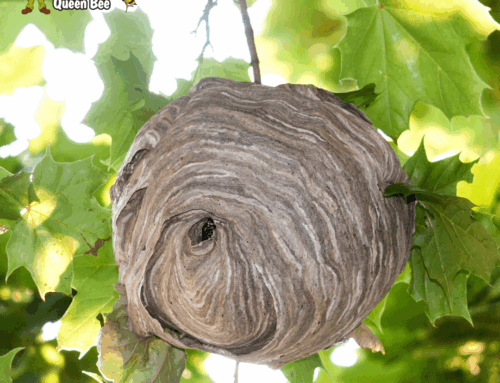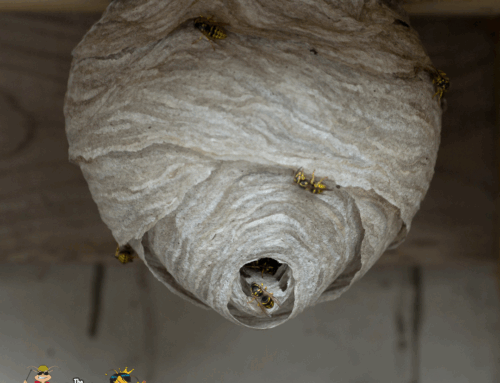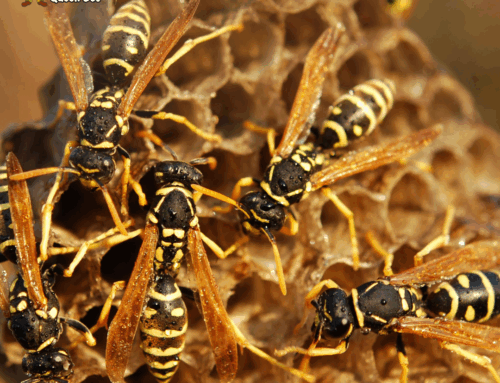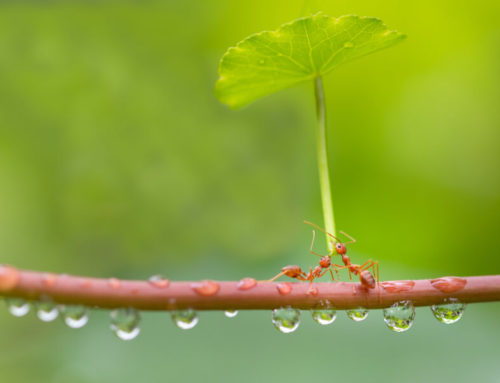“Are wasps useful?” A question muttered by anyone trying to enjoy a nice dinner al fresco in the summer months while being pestered by Yellowjackets.
What good are wasps, anyway? What’s the difference between a wasp and a bee and a hornet? How do I prevent wasps from bothering me in my backyard when I am trying to enjoy a nice grilled steak and a pint of beer?
Bees vs. Wasps vs. Hornets
First, let’s go over the difference between wasps, bees, and hornets. Being in the pest control industry, we get a lot of calls for people with “bees” in their backyard or in their homes. The first question we ask when someone calls about “bees” is “Are you sure it is a bee and not a wasp?” Most do not know the difference, but they are fairly easy to identify.
Unless it is a bumblebee, most of the time people incorrectly identify all bees, wasps, and hornets as “bees”. This is mostly just a terminology thing. A colloquialism for all stripey, stingy things. The distinction between bees and wasps and hornets is important in our industry as there are different ways of dealing with them depending on the species.
Wasps
The technical definition of a wasp is “any member of a group of insects in the order Hymenoptera, suborder Apocrita, some of which are stinging…distinguished from…bees…by various behavioral and physical characteristics”1. Basically, wasps are stinging insects that are differentiated from bees by their “slender, smooth bodies and legs with relatively few hairs”. They are “predatory and parasitic and have stingers with few barbs”.
Wasps can also be identified by their narrow “waist” as bees have a more filled-out body shape that is fuzzy all over. Hornets are just large wasps with wider heads and rounded abdomens that are more aggressive. Hornets are also more black-and-white in their coloring rather than yellow and black2.
A Brief Look at Wasp Nests
The nesting habits of wasps and hornets are somewhat similar as many species of wasps build exterior, paper nests like hornets, but you can also find wasps in underground nests while hornets almost exclusively build nests high up in trees or in the eaves of houses. The nests of bees vary between species, but they do not build paper nests like those of wasps and hornets and prefer to build inside wall voids, underground, or in wood. We will go over nest identification in a different post.
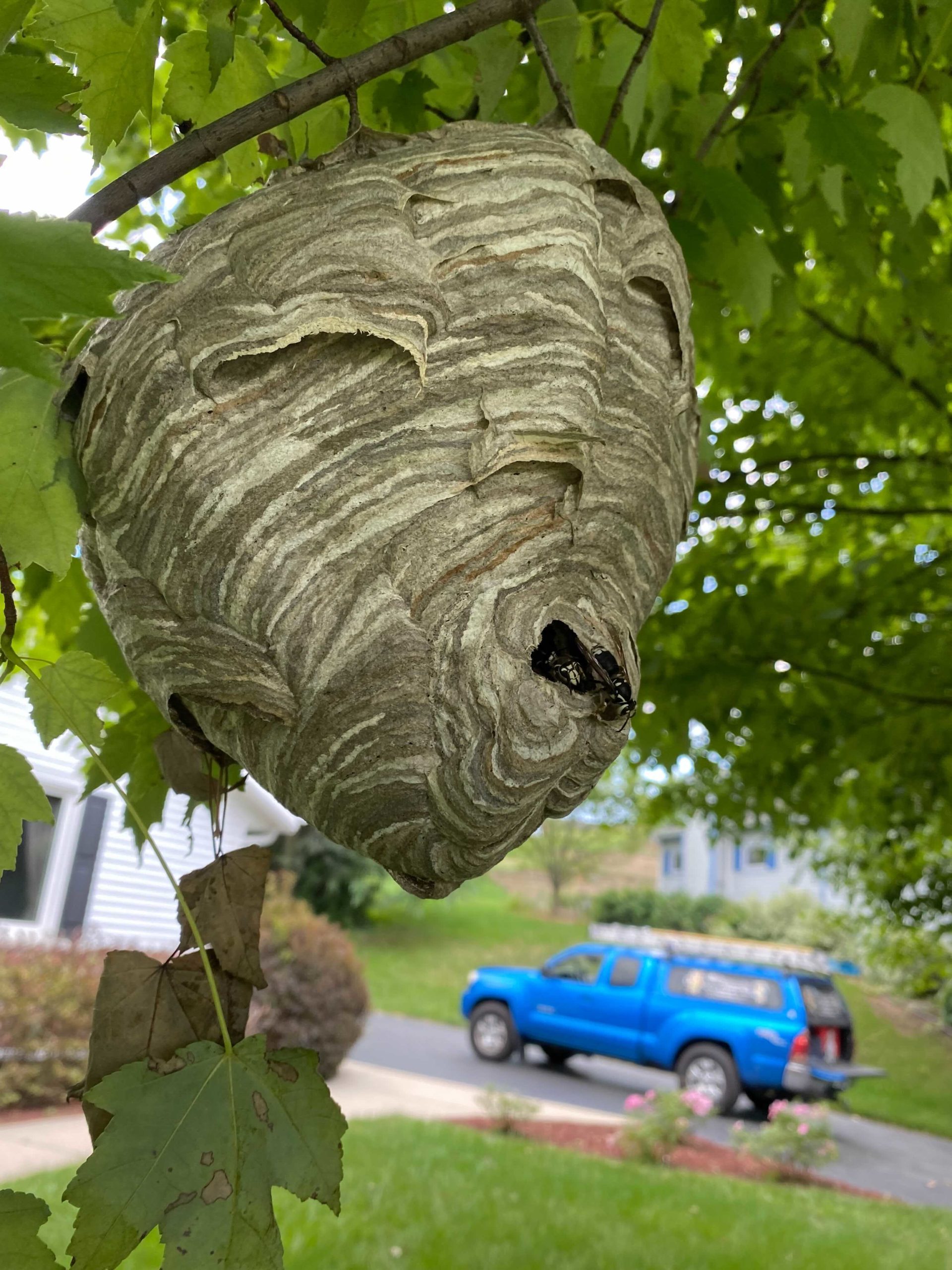
Are Wasps Useful?
Now, on to the most important question, are wasps useful? The short answer is yes, they are beneficial. While they may be a nuisance and painful when they sting, they do positively impact the environment.
Paper Wasps, for example, make excellent pest control. They are carnivorous so they feed on spiders, flies, and other insects. They are generally not as aggressive towards humans so they are good to keep around as they eat all the other pests that you might have around your house. Yellowjackets and other wasps are also predators that eat other insects. As stated in a BBC News article, “A world without wasps would be a world with a very much larger number of insect pests on our crops and gardens”3. Pests on crops negatively effects the food supply chain. In addition to pest control, wasps are fairly good pollinators. Not as good as bees that are designed for pollinating, but they do contribute to keeping crops fertilized and growing.
Figs and Wasps
For fig lovers, wasps also are responsible for the parasitism that goes into making figs. So, without wasps there would be no figs. And who wants to live in a world without Fig Newtons? No one.
How Do I Prevent Wasps From Bothering Me?
Barring covering your backyard with a screenhouse (I’m looking at you, Florida), there is no 100% guaranteed way prevent wasps from trying to eat your tasty steak and drink your beer. They love meat and sugar and by the end of the summer they are famished! Getting a Preventive Service for Stinging Insects is a good start as that will prevent bees and wasps from nesting on your house. Less nests mean less pests!
Contact us if you want more information on that Spring treatment. Learning to appreciate wasps and understanding their behaviors is truly the best way to live peacefully with them. Or, carry around a fly-swatter all the time and get yourself some good topical ointment to treat the stings!
